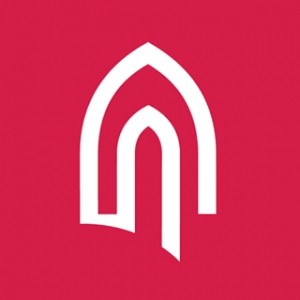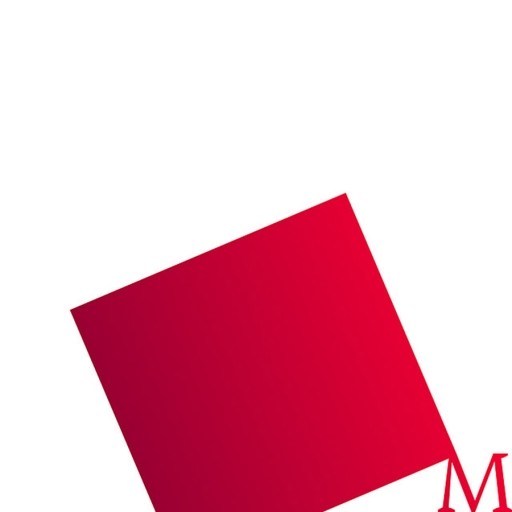Photos of university / #tallinnuniversity
Digital Library Learning (DILL) is a comprehensive master’s programme offered by Tallinn University, designed to equip students with the knowledge and skills necessary to develop, manage, and evaluate digital libraries and learning environments. This programme combines theoretical foundations with practical applications, focusing on the integration of digital technologies into library and information services, educational practices, and knowledge management. Students will explore topics such as digital content creation, metadata standards, open access, information retrieval, and user experience design, preparing them to operate effectively in the rapidly evolving digital information landscape. The curriculum emphasizes interdisciplinary learning, merging principles from information science, computer science, education, and communication studies, allowing graduates to innovate and improve digital library services in diverse settings such as academic institutions, public libraries, cultural heritage organizations, and corporate environments. Throughout the programme, students will have opportunities to engage in hands-on projects, internships, and research activities, fostering practical competencies and a critical understanding of emerging trends like digital archiving, semantic web technologies, and mobile learning. The programme aims to develop professionals capable of designing user-centred digital library systems, implementing digital preservation strategies, and promoting access to knowledge for wider communities. Graduates of DILL will be well-positioned to pursue careers as digital librarians, information specialists, content managers, digital project coordinators, and research scholars. Tallinn University’s emphasis on internationalization and innovative teaching methods ensures that students are prepared to meet the global demands of digital library development and digital learning solutions, making the DILL programme a leading choice for those aspiring to shape the future of information access and digital education.
Digital Library Learning (DILL) at Tallinn University offers a comprehensive and innovative master's degree program designed to prepare students for the rapidly evolving field of digital librarianship, information management, and digital content creation. The program focuses on developing advanced skills in managing digital libraries, archives, and information systems, as well as understanding the theoretical and practical aspects of digital learning environments. Throughout the course, students will explore various topics including digital content curation, metadata standards, digital preservation, and open access initiatives, equipping them with the tools necessary to operate effectively in a digital information landscape.
The curriculum emphasizes both technical skills and managerial competencies, enabling graduates to design, implement, and evaluate digital library services and resources. Students will gain hands-on experience with contemporary digital tools and platforms, such as digital repositories, content management systems, and web technologies. The program also covers important areas like user experience design, information retrieval techniques, and data analytics, preparing students to enhance user engagement and improve the accessibility of digital information.
Furthermore, DILL encourages a multidisciplinary approach by integrating insights from information sciences, computer science, and education. This interdisciplinary focus ensures that graduates are well-versed in the pedagogical aspects of digital learning, as well as the technological infrastructure that supports it. The program also promotes research and critical thinking skills, enabling students to contribute to scholarly discussions on digital information management and to innovate in the field.
Students in the program benefit from the university’s strong connections with industry partners, digital libraries, and research institutions, offering opportunities for internships, collaborative projects, and networking. The program is suitable for individuals aiming to pursue careers in digital librarianship, digital archiving, information consultancy, or digital content development. Upon successful completion, graduates will be equipped with the necessary competencies to lead and manage digital information services, contribute to academic research, and support digital literacy initiatives in various organizational contexts.
Overall, Digital Library Learning at Tallinn University is a forward-thinking program designed to meet the demands of the digital age, preparing students to thrive in a variety of roles within the digital information environment and to contribute meaningfully to the development of accessible, sustainable, and innovative digital libraries and learning spaces worldwide.
Program requirements for the Master’s degree in Digital Library Learning (DILL) at Tallinn University include a combination of academic prerequisites, language proficiency, and application materials. Applicants are generally required to hold a bachelor’s degree or an equivalent undergraduate qualification in a relevant field such as information sciences, library studies, information technology, or related disciplines. The admissions committee looks for candidates with a demonstrated interest in digital library technologies, digital content management, and e-learning environments.
Proficiency in English is mandatory, with applicants typically needing to provide evidence of language skills through accepted tests such as IELTS, TOEFL, or equivalent certificates, unless they have completed prior education in English-medium institutions. As part of the application process, candidates must submit a completed application form, official transcripts of their previous academic records, a curriculum vitae or resume detailing relevant experience, and a motivation letter explaining their interest in the program and career aspirations. Some programs may also require letters of recommendation from academic or professional referees who can attest to the applicant’s readiness and suitability for graduate-level study.
In addition to the academic and language requirements, applicants might need to demonstrate relevant practical experience, such as internships or employment in library, information management, or related fields, although this is often considered supplementary. The program emphasizes interdisciplinary learning, so candidates with diverse backgrounds related to digital content, learning platforms, or information management are encouraged to apply. During the selection process, the admissions committee assesses all submitted materials comprehensively, taking into account academic performance, motivation, relevant experience, and potential contributions to the academic community.
Once admitted, students are expected to meet the program's attendance, participation, and coursework completion requirements, which include coursework, projects, and possibly a thesis or final project that demonstrates their mastery of digital library learning concepts and skills. Continuous assessment through coursework, presentations, and project work forms a core part of the program requirements. Overall, the program aims to equip graduates with the knowledge and skills necessary to innovate and advance digital learning environments within libraries and information institutions globally.
The Digital Library Learning (DILL) master's programme at Tallinn University offers a variety of financing options to support both local and international students in pursuing their studies. Tuition fees for the programme are set by Tallinn University and may vary depending on the student's nationality and residence status. Typically, tuition fees are payable annually or per semester, with payment deadlines established by the university.
Students interested in funding their education can explore several avenues. Tallinn University provides scholarships and grants based on academic achievement, social needs, or special talents. International students may apply for mobility grants or exchange scholarships if participating in exchange programs coordinated by the university. Additionally, students are encouraged to seek external funding sources such as government scholarships, private foundations, or sponsorships from their home countries.
The university also offers information about part-time work opportunities and internships which can help students finance their studies while gaining practical experience. The availability and eligibility criteria for these financial support options are detailed on the university's official website and vary from year to year. Furthermore, some students may qualify for student loans or financial aid programs specific to their country of residence, which can be coordinated through national education agencies or financial institutions.
Prospective students are advised to consult the Tallinn University financial services or admission office early in their application process to identify the most suitable financing options. It is essential to review all deadlines, eligibility requirements, and application procedures carefully to maximize the chances of receiving financial support. The university's commitment to fostering an inclusive academic environment ensures that students from diverse financial backgrounds are encouraged to apply and pursue their academic interests without undue financial hardship.
The Digital Library Learning (DILL) programme at Tallinn University is an innovative Master's degree designed to prepare students for the rapidly evolving world of digital information management and technology. This programme combines disciplinary knowledge and practical skills, enabling graduates to develop and manage digital library systems, electronic information services, and digital archives. It emphasizes the importance of digital literacy, information retrieval, and the application of modern ICT tools in the context of library and information sciences. Throughout the course, students are engaged in a variety of thematic modules such as digital content management, metadata standards, digital preservation, user experience design, and information architecture. The programme also focuses on technological innovation, fostering skills in programming, data management, and web development specific to digital library environments. Students have the opportunity to participate in research projects, internships, and collaborations with libraries and information institutions, thereby gaining valuable practical experience that complements theoretical learning. The programme is delivered through a combination of lectures, seminars, workshops, and e-learning activities, supporting flexible learning paths suited for students coming from diverse backgrounds. Graduates of DILL are well-equipped to work in various sectors including public libraries, academic institutions, national archives, and private information companies, where digital literacy and digital content management are increasingly vital. The programme aligns with Estonia’s national priorities to develop digital skills and promote innovation in information management. It is suitable for students interested in technology, library sciences, information systems, and digital humanities, offering a comprehensive education that bridges traditional librarianship with cutting-edge digital practices. Admission requirements typically include a relevant bachelor's degree and a demonstrated interest in information technology or digital content. The faculty behind the programme comprises experienced researchers and practitioners dedicated to fostering a dynamic learning environment. Upon completion, students receive a Master's degree in Digital Library Learning, which opens pathways to advanced careers in digital information management and contributes to the digital development of library services and information environments.







